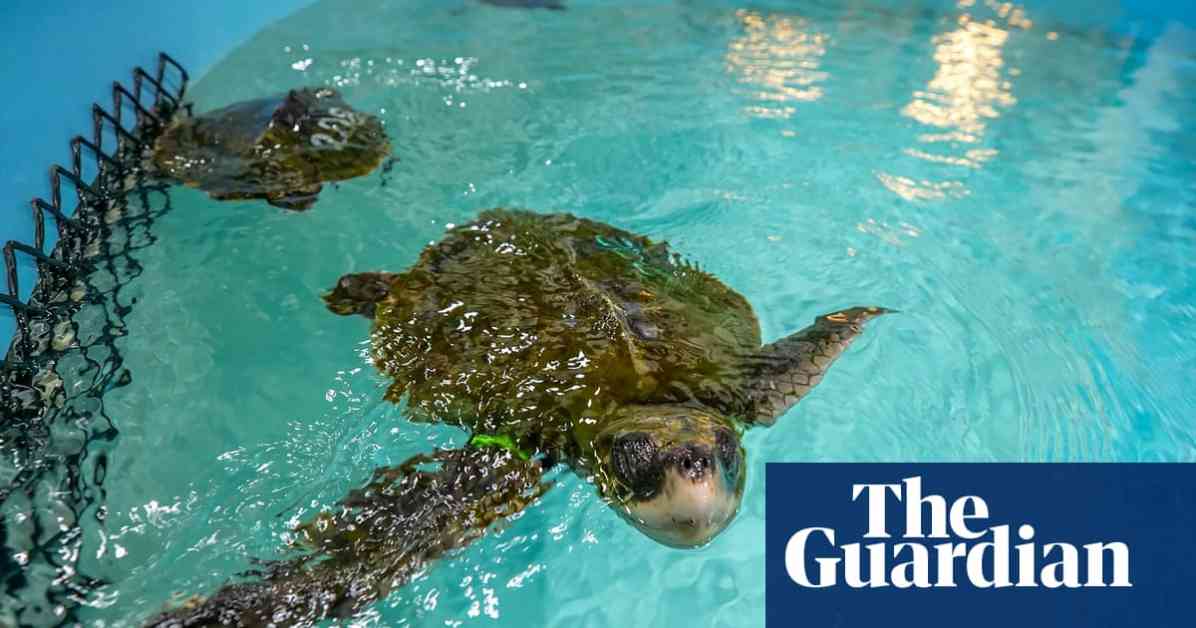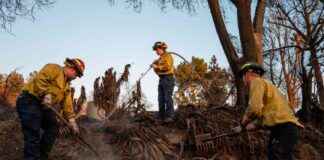Increase in Whale, Turtle, and Dolphin Strandings on Cape Cod: Causes and Solutions
Cape Cod, Massachusetts, a beloved vacation spot in the northeast US, has been making headlines for a different reason this year: an alarming increase in animal strandings. Dolphins, whales, sea lions, and turtles are being found in distressing numbers on the peninsula’s beaches, prompting experts to launch more rescue missions than ever before. The culprit behind this surge? Changing tides.
Experts at Work
Brian Sharp, a senior biologist at the International Fund for Animal Welfare, shed light on the challenges faced during animal rescues. He likened the stress and shock experienced by stranded animals to that of humans in a car accident. For instance, saving a stranded dolphin, which can weigh between 150 and 450lbs, is no easy feat. Sharp emphasized the need for swift action to minimize the animal’s stress and cited the presence of scavengers like coyotes as additional threats.
The rescue equipment required for stranded dolphins includes blankets for warmth, eye-covering sheets, padded boards for safe transport, and a dedicated team of experts and volunteers. Each stranded dolphin undergoes a thorough assessment to determine its fitness for release back into the water. Sharp stressed that if a dolphin shows signs of poor health, euthanasia may be the most humane option to prevent further suffering.
A Race Against Time
The growing number of animal strandings off Cape Cod has been attributed to the drastic changes in tidal levels. The substantial difference between low and high tides, ranging from 9 to 12ft (3-4 meters), poses a grave risk to stranded marine creatures. Dolphins, for example, require over a foot of water to maneuver effectively. Once the tide recedes, they find themselves marooned on land, unable to return to safety.
The impact of shifting tides extends beyond dolphins to other vulnerable species, including turtles. Linda Lory, the New England Aquarium’s rescue and rehabilitation manager, has been at the forefront of efforts to save “cold-stunned” turtles. These turtles suffer from exposure to rapidly cooling waters, leading to weakness and health complications. The critically endangered Kemp’s ridley turtles are among the most affected, with higher-than-usual numbers of cold-stunned cases reported in Cape Cod.
A Call for Action
The warming waters of the Gulf of Maine, Cape Cod’s primary marine environment, have exacerbated the plight of stranded animals. As temperatures rise, turtles and other species venture farther north, only to face lethal conditions when the waters cool. The unique geography of Cape Cod, described as a “sandy hook that sticks out in the ocean,” poses navigation challenges for disoriented animals, trapping them in a cycle of peril.
Rescuers like Lory and Sharp are confronted with a growing influx of sick and injured animals, requiring intensive care and rehabilitation. The surge in strandings has stretched resources thin, leading to mass casualty scenarios that demand a collaborative response. Despite the challenges, dedicated professionals are committed to ensuring the survival and well-being of these vulnerable creatures.
In conclusion, the escalating trend of animal strandings on Cape Cod underscores the urgent need for proactive conservation measures. By addressing the root causes of these incidents and enhancing rescue and rehabilitation efforts, we can safeguard the marine biodiversity of this iconic region and protect its inhabitants for generations to come.














